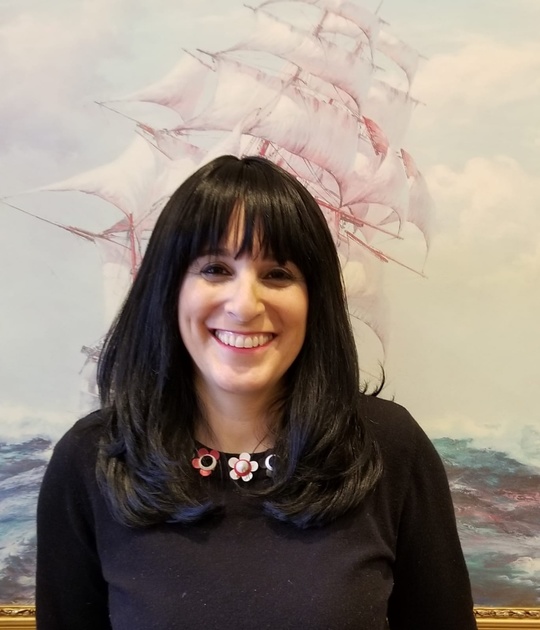
So I just came back from the Nefesh Conference this week.
Whew.
Lots of fun. Lots of new information. Lots of new people!
Nefesh International is a Jewish Orthodox organization for mental people—oops! I mean for professionals in the field of mental health (like me), and rabbis who are involved with the issues our communities are confronted with daily. Believe it or not, Nefesh spans the world and has branches not only in the USA but also in England, Brazil, Belgium, and Argentina, and Eretz Yisroel.
Nefesh is great because it offers a lot of training opportunities for therapists to continue their learning and acquire knowledge about the latest, most up-to-date therapies and techniques that are available for therapists. It also has an bi-annual weekend conference (that I just returned from) in which we get to meet an incredibly diverse group of frum social workers, psychologists, mental health professionals, psychiatric nurses, and psychiatrists. Other attendees—and Nefesh members—also include rabbis, pastoral counselors, mechanchim/mechanchos, attorneys, coaches, and graduate students in the above fields. It's amazing!
You want to know the purpose of Nefesh?
It's to unite all these various fields and by working together to address the various issues our fellow Jews, adults, and children, face in the mental health arena, using the the most cutting edge information, training, and skills to improve the overall functioning of our schools, yeshivos, and communities. And all of this is done under halachic guidance that is governed by rabbanim in this organization, as well as the understanding that all frum professionals have a practice guided by Torah-observant values and proper hadrachah. It's a wonderful organization and I had a most fabulous Shabbos.
But why am I talking about Nefesh?
Because as I was looking around at all the participants, I realized that my readers may be interested to know what the difference is between all the different letters after the names of the professionals, and why does it make a difference to begin with.
So here goes (and you can refer to the list detailed a few paragraphs prior):
Social workers (like me), psychologists, psychiatric nurses, and mental health professionals are all similar in that the schooling is at a Master's Level (meaning that after the BA degree, there is another two years of schooling for about 60 credits). All require many hours working in the field of mental health, and all have licensing exams after those hours and classes are completed. All require additional supervised hours after graduating as well before being able to practice privately.
It is possible to have a social work degree in the Bachelor's program, but these are not the therapists one would see in the traditional sense of therapy. In addition, psychologists often have additional years of training, usually a total of 5 years of schooling instead of 2 years, and obtain their doctorate. So the letters after their name would be PsyD, meaning a doctorate in Psychology. And they would be allowed to call themselves (and they do!) Dr. So-and-So.
Although it is hard to distinguish what makes someone a social worker versus a psychologist, psychiatric nurse, or mental health professional except for the actual letters that differ (LMSW/LCSW, Psychologist/PsyD, PMHNP, or LMHP), the schooling itself differs in their focus. Social workers are taught to view a person's problems through a social model, often referred to Person-in-Environment (PIE). Advocacy, social justice, and collaborating with all the systems in which a person lives is part of social work values.
Psychologists are trained from a medical model, and view a client's problems within the focus of a diagnosis found in the DSM 5, a manual that lists all mental health disorders. Although for insurance purposes, all mental health providers must give a diagnosis for reimbursement, for the psychologist it's not simply a formality; it's how they are trained. Psychologists also are trained to do psychological evaluations, like IQ tests and all the other testing that would be required by the Board of Education (for example) in order for a child to be found eligible for special education (or gifted) services.
Psychiatric nurses are those who have a bachelor's degree in nursing and go on to advanced training to be able to work in hospital and other medical settings to assess, diagnose, and apply treatment. They can also do clinical work, working also from a medical model of treatment.
The focus of schooling for the Mental Health Professionals is clinical work. While both social workers and psychologists do clinical work, classes for mental health professionals do not focus neither on testing or on social issues but only mainly on clinical practice in contrast to the prior two in which clinical practice is limited to a much smaller number of classes.
Social workers can choose to work administration or other positions unrelated to direct clinical practice (therapy as we commonly call it), psychiatric nurses are advanced nurses who can prescribe medication in some states, and psychologists can do evaluations. But mental health professionals do primarily clinical work.
In the end, when all four end up as therapists working with individuals, couples, and families, they may look very similar and they often are. It would depend on their post graduate training, where their passion for counseling lies (children, teens, adults or seniors; individuals or couple counseling; specific areas of expertise like drug addiction counseling, play therapy, eating disorders, or anxiety disorders), and their theoretical orientation (attachment, cognitive behavioral, psychodynamic, gestalt, or family systems to name a few).
Choosing a therapist has less to do with finding out which program they entered and more to do with their licensing (in contrast to unlicensed counselors), level of experience, post graduate training, ongoing supervision and training, commitment to their work, and personality that matches their client.
It's important that the therapist you choose is licensed because it not only means she or he has successfully completed all the requirements of their field but also that the therapist has accountability to a licensing board in areas of ethical practice and confidentiality as well as other aspects of therapy.
For the most part, psychiatrists, who are doctors (having completed the full arduous, lengthy, and costly schooling of becoming a doctor), assess, diagnose, and prescribe medications, working collaboratively with therapists. Usually they do not do the clinical work, although they might incorporate a bit of counseling into their sessions with clients. Honestly? They are simply too expensive for the most part for most people to see on a weekly or even bi-weekly basis, and so their practice is usually limited to monthly, bi-monthly, or even visits less often, to administer medications for various mental health issues.
So there you have it.
Now imagine over 500 hundred therapists under one roof for 4 days straight.
Little crazy, no?
Definitely. But such fun!
NOTE: This article was originally published in Binah Magazine
ANOTHER NOTE: This was published in January after Nefesh Conference
EVEN MORE EXCITING NOTE: My book about therapy will be coming out in the near future. Stay tuned for more information
Look me up on LINKEDIN https://www.linkedin.com/in/mindy-blumenfeld-a8067583
Check out my book THERAPY SHMERAPY, available in bookstores and through Amazon
Browse through my previously published articles on my former blog Therapy Thinks and Thoughts at frumtherapist.com/profile/MindyBlumenfeldLCSW
Read current articles in my bi-weekly column THERAPY: A SNEAK PEEK INSIDE in Binah Magazine, available on newsstands every Monday.
 Previous
Previous

